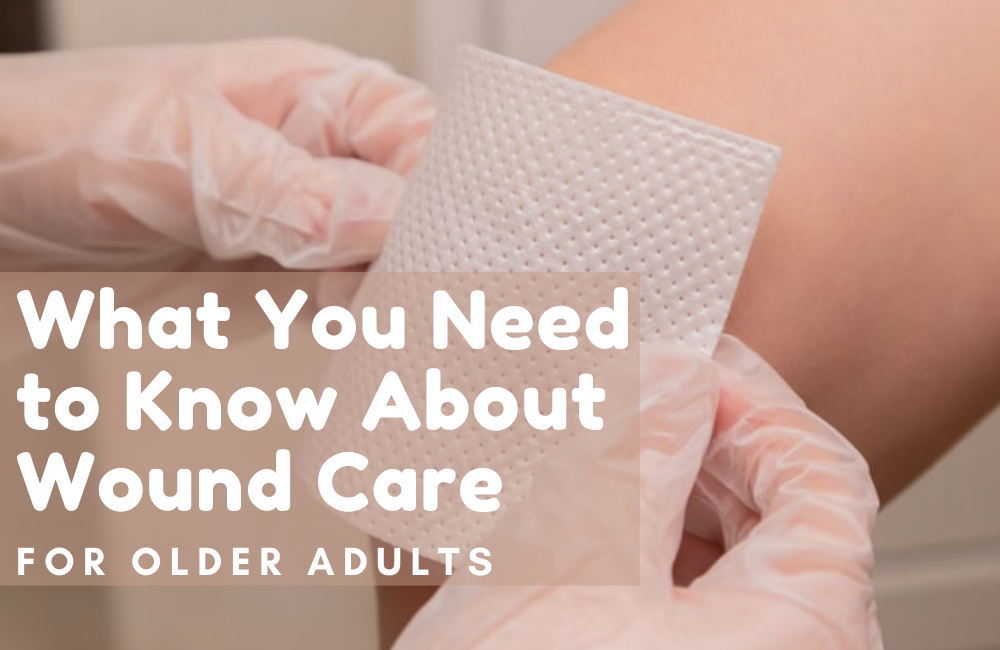It is normal for people to occasionally get cuts and scrapes which heal fairly quickly. However, if an elder individual gets a wound, it may be a much more serious situation. When older adults get injured, their wounds take longer to heal because blood does not flow to the site as easily. The good news is that there are key prevention tips and wound care treatment methods to use on their elder loved ones.
If you are the primary caregiver of the elder family members in your home, it pays to brush up on how to take care of wounds on older people. Doing so will ensure you are prepared for any untoward incidents that may happen. This blog post will shed some light as to the best prevention and wound care tips.
Wound Care For Elderly Adults
The elderly may also be prone to wounds, especially if they are still mobile and able to do home tasks on their own. Being prepared and knowing what to do in case of emergency situations like these will allow you to administer swift and effective treatment to help your loved one with their wound.
Here are a few tips to help you should you ever be faced with this circumstance yourself.
1 – Tears and Scrapes on the Skin
As we get older, the elasticity and strength of the skin gets weaker. This will make an older person’s skin more susceptible to tearing, bruising, and infection. Tears (or any type of abrasion) on the skin may be painful, even if they are only superficial. If a skin tear occurs, the first thing you should do will be to clean and properly dress the wound. Use a hydrogel sheet over the wound and replace it at least once a day until the wound heals.
2 – Pressure Ulcers
These wounds, more commonly known as bed sores, usually happen as a result of pressure or friction that frequently occurs on a certain part of the body. Patients who are bedridden may experience pressure ulcers because they spend most of their time lying down. Periodic repositioning of the patient is a good idea to help prevent bed sores but if wounds appear, frequently changing the dressing to prevent infection is necessary.
3 – Wounds on Diabetics
Diabetic patients have a higher susceptibility to having severe infections. This is why it is important to make sure that any wounds, no matter how small, are treated immediately. Avoiding the use of harsh cleaning agents like alcohol will reduce the pain and discomfort your loved one has to endure when you clean their wounds.
Wound Prevention
To prevent any untoward and potentially life-threatening situations from arising, making sure that there are no sharp objects around the house is a good first step in wound prevention for senior citizens. Also, keeping a first aid kit will be handy in case you need to clean and dress any wounds.
Conclusion
It can be extremely difficult and stressful to deal with an elder individual who has inadvertently wounded themselves. The key to being able to handle this situation successfully is to know what to do when your older loved one gets wounded. Keep in mind that it is much better to be prepared for the situation rather than panic and only look online for what to do when the emergency arises.
It may be tiring to be the primary caregiver for your older loved ones. If you need the help of a healthcare professional to help you maintain the health and wellbeing of your elderly family members, Bridge Home Health and Hospice can help you! We provide home care services provided by trained clinicians and therapists. Interested parties may contact (800) 476-0043.

